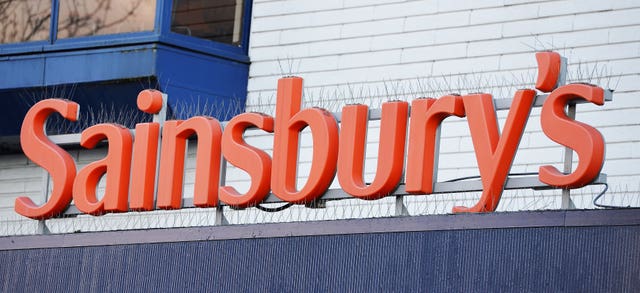Supermarket plastic rises above 900,000 tonnes a year despite reduction pledges
Only Waitrose, Tesco and Sainsbury’s achieved ‘marginal’ reductions, according to a report.

Supermarkets’ use of single-use plastic has risen to more than 900,000 tonnes, despite retailers making public commitments to cut down on their packaging, according to a report by Greenpeace and the Environmental Investigation Agency (EIA).
Seven out of the 10 major UK supermarkets increased their plastic footprint over the last year, with only Waitrose, Tesco and Sainsbury’s achieving “marginal” reductions.
The major supermarkets were ranked according to their commitments to reduce single-use plastic, eliminate non-recyclable packaging, engage with supply chains and transparent reporting, with Waitrose coming first, followed by Morrisons and Sainsbury’s.

Iceland dropped from the top spot last year to seventh place this year, while Sainsbury’s climbed to third place from the bottom of last year’s table.
Waitrose and Morrisons scored highly after reducing or setting targets to reduce plastic packaging and trialling refill initiatives.
Sainsbury’s announced plans to reduce plastic by 50% and introduced reusable produce bags for loose fruit and vegetables.
Leading brands which failed to respond to the survey for the second year running included Ocado, Best-One and Booker Group.
Overall, total plastic packaging used by the UK’s 10 biggest supermarkets increased from an estimated 886,000 tonnes in 2017 to 903,000 tonnes in 2018.
The rise was driven by sales of branded products, with plastic packaging associated with these items increasing by nearly 20,000 tonnes, the report said.

EIA ocean campaigner Juliet Phillips said: “It’s shocking to see that despite unprecedented awareness of the pollution crisis, the amount of single-use plastic used by the UK’s biggest supermarkets has actually increased in the past year.
“Our survey shows that grocery retailers need to tighten up targets to drive real reductions in single-use packaging and items.
“We need to address our throwaway culture at root through systems change, not materials change – substituting one single-use material for another is not the solution.”
Fiona Nicholls, from Greenpeace UK, said: “Supermarkets are failing on plastics and failing their customers.
“We hear piecemeal supermarket announcements on plastic every other week, but in reality they are putting more plastic on the shelves than ever.
“Supermarkets need to buck up and think bigger. They must change their stores to offer loose food dispensers, reusable packaging, and move away from throwaway packaging altogether.”
An Asda spokesman said: “Whilst we are disappointed by our ranking in this year’s EIA report, we recognise that this is reflective of our increased sales year on year rather than our level of commitment to this important issue.
“Relative to our baseline year, we have already removed more than 6,500 tonnes of plastic for our customers and we’re constantly looking at new ways we can push ourselves and our suppliers harder in this area, including in trialling refillable and reusable packaging options.”
An Aldi spokesman said: “We have already removed more than 2,200 tonnes of plastic and replaced 3,000 tonnes of unrecyclable material with recyclable alternatives, as part of our drive to reduce plastic packaging by 25% by 2023.
“We know there is much more to be done and will continue to have positive discussions with Greenpeace to update them on our progress.”
Andrew Opie, director of food and sustainability at the British Retail Consortium, said: “Retailers are taking many steps to remove plastics from their stores, such as removing all polystyrene packaging and plastic cutlery and trialling packaging-free and refillable options.
“This helps explain how supermarkets achieved a drop in the amount of plastic across their own-brand products.
“However, more needs to be done, which is why retailers have set challenging reduction targets and are committed to ensuring all packaging is 100% reusable, recyclable or compostable.”





